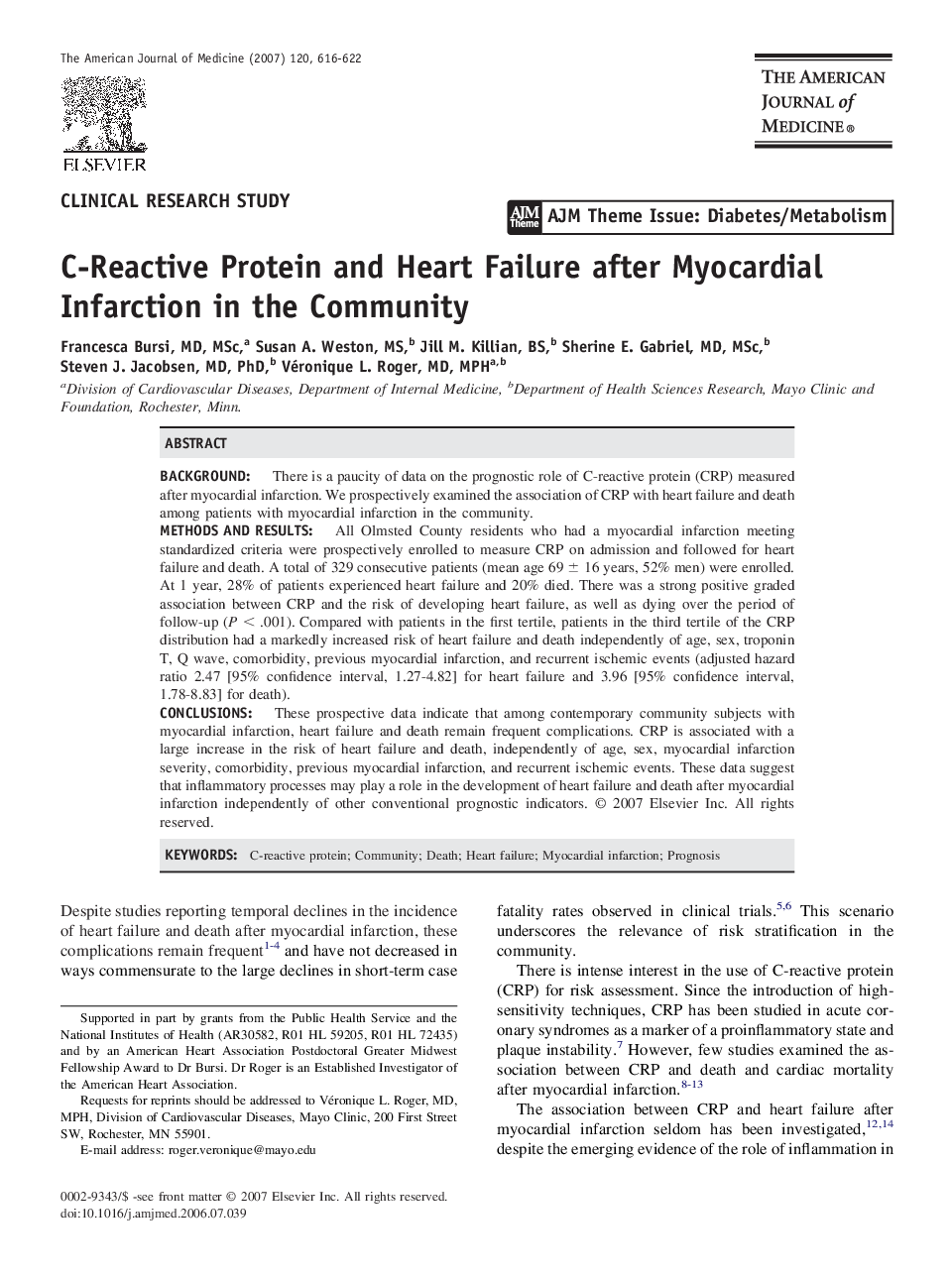| Article ID | Journal | Published Year | Pages | File Type |
|---|---|---|---|---|
| 2721158 | The American Journal of Medicine | 2007 | 7 Pages |
BackgroundThere is a paucity of data on the prognostic role of C-reactive protein (CRP) measured after myocardial infarction. We prospectively examined the association of CRP with heart failure and death among patients with myocardial infarction in the community.Methods and ResultsAll Olmsted County residents who had a myocardial infarction meeting standardized criteria were prospectively enrolled to measure CRP on admission and followed for heart failure and death. A total of 329 consecutive patients (mean age 69 ± 16 years, 52% men) were enrolled. At 1 year, 28% of patients experienced heart failure and 20% died. There was a strong positive graded association between CRP and the risk of developing heart failure, as well as dying over the period of follow-up (P < .001). Compared with patients in the first tertile, patients in the third tertile of the CRP distribution had a markedly increased risk of heart failure and death independently of age, sex, troponin T, Q wave, comorbidity, previous myocardial infarction, and recurrent ischemic events (adjusted hazard ratio 2.47 [95% confidence interval, 1.27-4.82] for heart failure and 3.96 [95% confidence interval, 1.78-8.83] for death).ConclusionsThese prospective data indicate that among contemporary community subjects with myocardial infarction, heart failure and death remain frequent complications. CRP is associated with a large increase in the risk of heart failure and death, independently of age, sex, myocardial infarction severity, comorbidity, previous myocardial infarction, and recurrent ischemic events. These data suggest that inflammatory processes may play a role in the development of heart failure and death after myocardial infarction independently of other conventional prognostic indicators.
